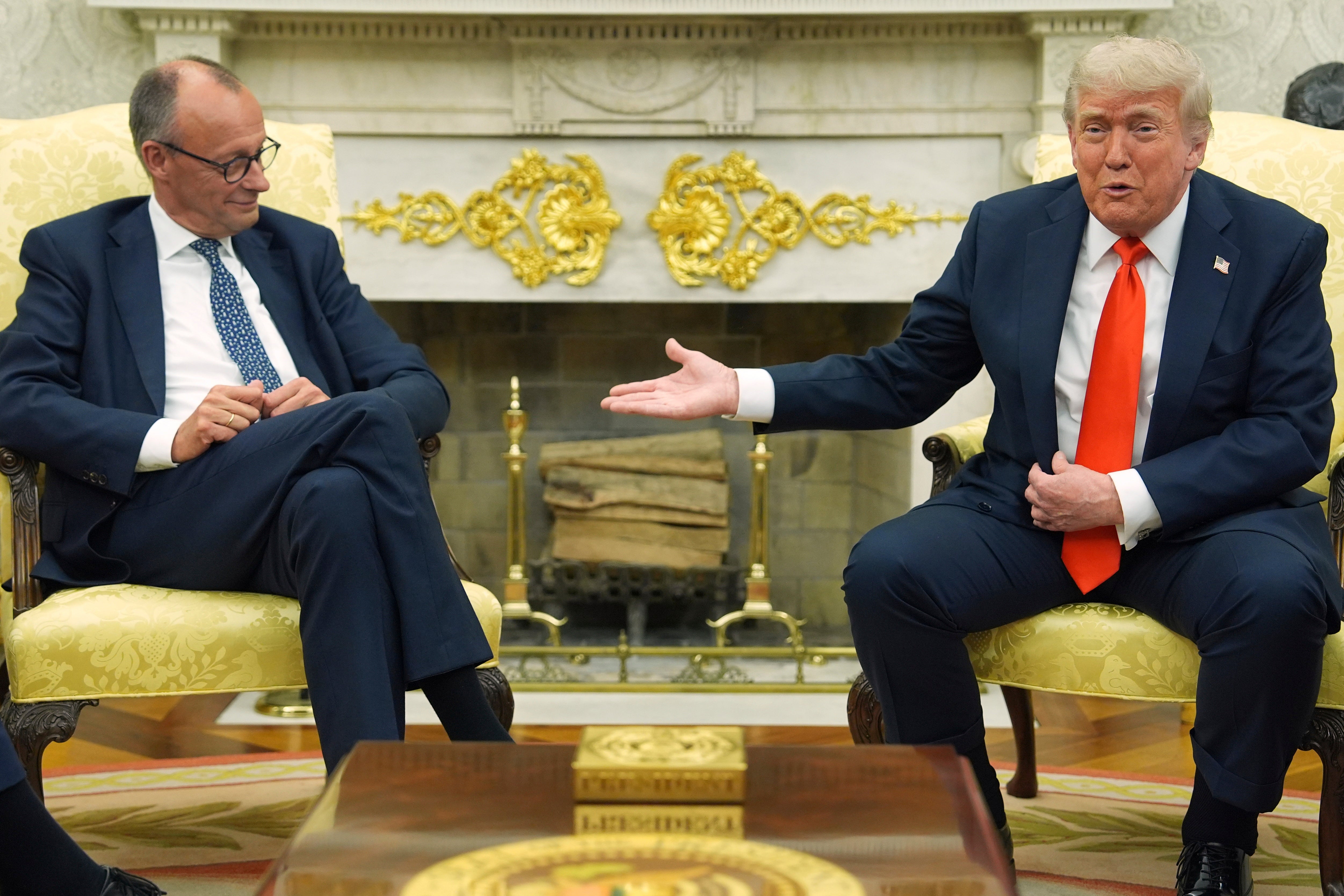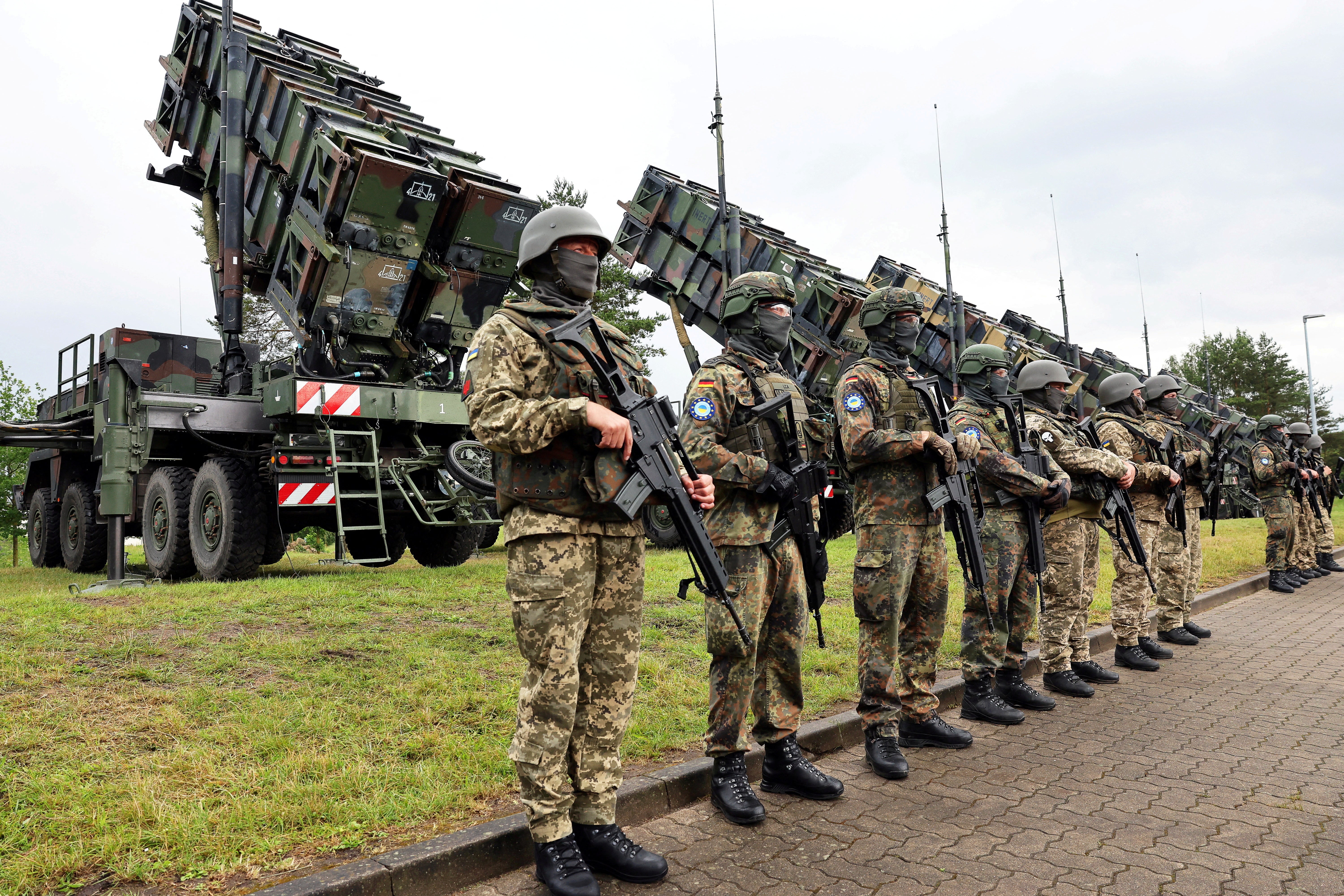Friedrich Merz has admitted that Europe has historically underfunded its own security and instead relied heavily on the United States.
The German Chancellor met with Prime Minister Sir Keir Starmer in the UK on Thursday to sign a treaty on a range of issues, such as defence and immigration.
On his first trip to London as chancellor, Mr Merz described the Kensington treaty as historic. It is the first major bilateral agreement between the UK and Germany to deepen defence cooperation and boost economic growth in both nations.
Russia’s war in Ukraine has defined the first two months of Mr Merz’s chancellorship, as has Donald Trump’s tariffs on the EU.

The German Chancellor said he has met with the US president three times now and they are “on the same page” on Ukraine – both wanting to bring an end to the war.
But he admitted that Europe had not historically funded its own security in the past.
"We know we have to do more on our own and we have been free-riders in the past," he told the BBC. “They're asking us to do more and we are doing more."
Asked about his relationship with Mr Trump, he said: "We are on the phone once a week; we are coordinating our efforts. One issue is the war in Ukraine, and the second is our trade debates and tariffs."
"We are seeing a big threat, and the threat is Russia. And this threat is not only on Ukraine. It's on our peace, on our freedom, on the political order of Europe," he told the Today Programme.
Mr Merz said he would do “whatever it takes” to boost Germany’s defence spending and increase the size of its army.

At a press conference on Thursday, Mr Merz and Sir Keir discussed ways to boost European support for Ukraine, following Trump’s announcement to bolster Kyiv’s stockpile by selling American weapons to Nato allies who would in turn send arms to Kyiv. This includes Patriot air defence missiles Volodymyr Zelensky has urgently sought.
Mr Merz said they had discussed Ukraine's need for long-range strike systems, which he called "long range fire". "Ukraine will soon receive substantial additional support in this area," he told the press conference.
The treaty includes a clause on mutual assistance which, "in light of the Russian war of aggression against Ukraine, is highly significant", a German official said this week.
He said that “above all, we need clarity on how weapons systems that are given up from the European side will be replaced by the US.”
Ukraine war live: Kyiv’s new PM says ‘more to be done’ after EU’s strongest sanctions
I deplore Brexit, German chancellor admits as he signs new treaty with Starmer
Republicans play coy about Trump-Epstein news: ‘I don’t know anything about it’
Reported birthday card from Trump to Epstein shines new light on their friendship
The EU targets Russia's energy revenue and shadow fleet with new sanctions over the war on Ukraine
How Ukraine’s drone-infested front is slowing Russia’s advance







